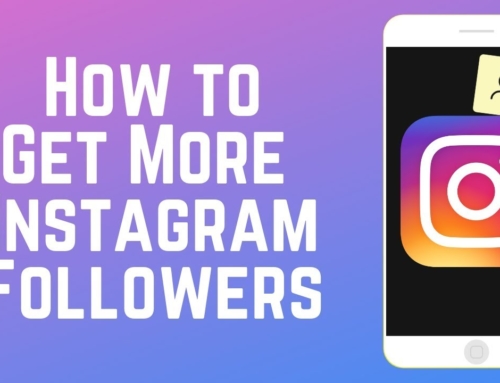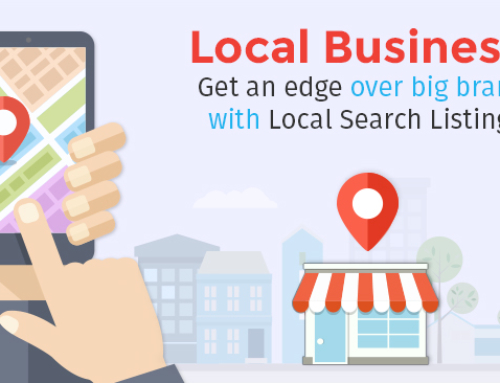This post was originally published on Oct. 11, 2018, and was updated on Sept. 17, 2019.
If you have a brick-and-mortar shop, you should have one major priority when it comes to your online presence — showing up in local business searches. It doesn’t matter if someone in Dallas, Texas finds your business online if you’re located in Tampa, Florida.
You need the people who live, work and spend time near your physical business location to be able to search and find your business.
The rest of this post will explain how you can make changes to start showing up in local business searches.
8 ways to start showing up in local business searches
The search placements listed below can be broken down into two categories, paid and organic. Both the Google Guaranteed listings and paid ads are placements your brand can get by paying to appear there.
On the other hand, organic search results and top Google My Business placements are acquired by catering to Google’s SEO best practices. Google chooses these results by considering:
- Relevance
- Distance
- Prominence
While you can’t necessarily control distance, you can optimize your web presence to be more relevant and prominent. Here are eight ways to do it.
-
- Create a Google My Business page.
- Optimize your Google My Business page.
- Add your business to relevant business directories.
- Include your business address on your website.
- Make sure your NAP is accurate across the entire web.
- Optimize your home page’s meta title and description.
- Make sure all other SEO elements are in place.
- Consider launching paid ads or Google Guaranteed placements.
But first, let’s define what a local business search is.
What are local business searches?
Google’s algorithms are designed to give people the most useful and relevant results possible. Just as you don’t want your Tampa business to show up in search results in Dallas, Google doesn’t want a Dallas searcher to see results for businesses in Tampa. So, Google has designed it’s search algorithm to show local results to searchers based on their location.
These results show in multiple ways.
Organic search results
Organic search results are unpaid listings that appear on search engine results pages (SERPs) because the website has strong SEO.
Paid search results
Paid search results are listings that appear on SERPs as a paid advertisement through search engine marketing.
Related: What’s the difference between Amazon advertising and paid ads on Google and Facebook?
Google My Business results
Google My Business results are featured, rich search results that highlight businesses that have Google My Business pages.
Editor’s note: Did you know that GoDaddy’s Websites + Marketing allows users to create and manage their GMB listings at no extra charge and without complicated add-ons? It’s true.
Google Guaranteed listings
Google Guaranteed listings are results featured on SERPs that are a part of the paid Google Guarantee program.
If you want your business to start showing up in local searches, you need to appear in one or more of these placements.
So, how do you do it?
1. Create a Google My Business page
The first step in showing up in local searches is creating your Google My Business Page. This, of course, will improve your chances of showing up as a top Google My Business search result. (You must have a verified Google My Business page to show in these results.) It will also help you build your online presence and increase your chances of showing in organic search results.
Related: How to promote your restaurant on Google My Business
2. Optimize your Google My Business page
It’s not enough to simply set up your Google My Business page to start showing up in local business searches. To improve the chances that your business will show in the top spots, you need to optimize and regularly update your business page.
-
-
- Add photos and makes posts from your page.
- Encourage your customers to leave reviews on your page.
- Continue to add FAQs to your Google page.
-
Related: Generate reviews: 8 ways to get more product reviews
3. Add your business to relevant business directories
Google My Business isn’t the only local business listing you should create for your brand.
Each listing sends signals to Google telling it that your business is credible and therefore, worth showing as a top search result.
Create business profiles on:
-
-
- Yelp
- Angie’s List
- Yellowpages
- City Search
- Foursquare
- Any industry-relevant directories
-
Related: Local Business Listings — The easier way to manage your online business listings
4. Include your business address on your website
Another way to get Google to help your brand start showing up in local business searches is by sending clear signals about where your business is located.
Clearly show your business’s physical address on your website by adding it to your footer and on the contact page. If you have more than one location, create a page with the address for each location. This doesn’t mean you should load up your footer or website with every name of a city or neighborhood within a 50-mile radius of your business. That dated practice can actually do more harm than good.
You can take this one step further and add structure data or local business schema to your website that includes your address.
5. Make sure your NAP is accurate across the entire web
As you set up directory accounts and business addresses on your website, it’s extremely important to make sure that the information is consistent and accurate. This information is referred to as your NAP.
-
-
- Name
- Address
- Phone Number
-
Don’t use different variations of your business name or include your suite number on some listings but not others.
Keep this information as consistent as possible to increase the chances of your website showing in local business searches.
Related: An eCommerce beginner’s local SEO guide
6. Optimize your home page’s meta title and description
A meta title and description are lines of codeIn communications and information processing, codeIn commun... More that are added to the backend of your website. You use meta tags to tell search engines more about a webpage. You also use them to tease the pages to searchers as this is the information they see when they view your website in local business searches.
Optimize both the meta title and description on your home page to target keywords for your business and the city where you are located.
7. Make sure all other SEO elements are in place
While there are unique tactics to help your website improve its local SEO, you can’t forget about the other SEO elements. Having strong on-site, off-site, and technical SEO is key to getting your brand to show up in local business searches. So focus on creating search-friendly on-site content, getting links back to your site, and meeting technical SEO requirements to improve your local search rankings.
8. Consider launching paid ads or Google Guaranteed placements
All of the other tips in this round-up are designed to help you appear more prominently in organic search results and Google My Business placements. But, you don’t have to rely on these methods.
If you’re struggling to boost your organic local search visibility, consider launching paid Google ads or joining the Google Guaranteed program to get your business closer to the top of local SERPs.
Related: The local business guide to using AdWords
Show up in local business searches and attract more customers
Showing up in local searches should be a top priority if you have a location-based business that relies on bringing in nearby customers. Use these tips to start optimizing your online presence and showing up when interested local customers conduct searches related to your business.
















Leave A Comment